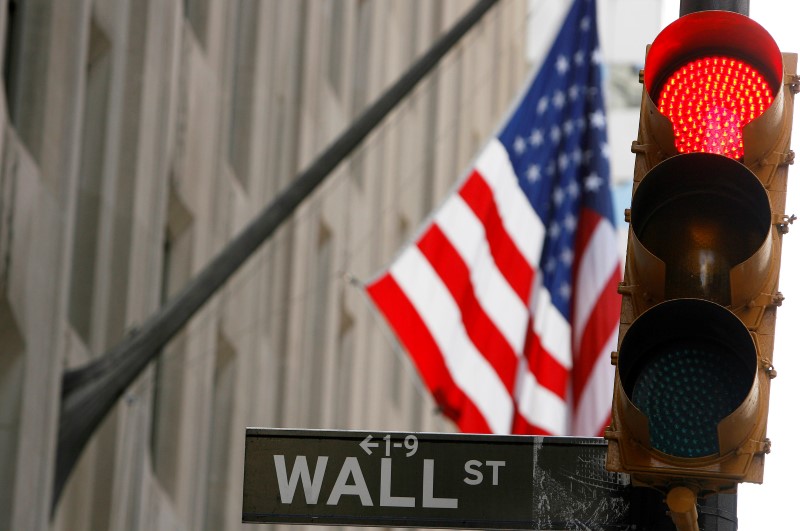Investing.com’s stocks of the week
By Geoffrey Smith
Investing.com -- U.S. stock markets opened lower in choppy trading on Friday, with ongoing liquidations in many stocks contrasting with pockets of strength in companies with better short-term cash generation.
The market was troubled by data showing that wage growth slowed the fourth quarter, while personal spending fell again in December as consumer prices continued to rise at a brisk clip.
By 9:37 AM ET (1437 GMT), the Dow Jones Industrial Average was down 252 points, or 0.7%, at 33,909 points. The S&P 500 was down 0.5% and the NASDAQ Composite was down 0.3%. The three indices have made an unconvincing start to the year, with declines of 6%, 9% and 15% respectively so far.
Earlier, the day's dump of U.S. economic data showed that the latest wave of Covid-19 hit personal spending, which fell 0.6% in December, its biggest monthly drop since March. Personal income also grew by less than expected at 0.3%, rather than the forecast 0.5%. At the same time, there was little sign of any easing in inflation pressures, with the index for core personal consumer expenditures - the Federal Reserve's preferred measure of inflation - rising by 0.5% for the third month in a row, bolstered not only by used car prices, but also by rents, healthcare and clothing costs. Core PCE prices rose 4.9% on the year.
There was a glimmer of hope however, in that the Employment Cost Index, a measure of wage and non-wage costs, rose by only 1.0% in the fourth quarter, down from 1.3% in the third quarter. Even so, wage costs rose 4% across the economy last year, the fastest rate in over 20 years.
"The ECI data seem to indicate that while wages continue to grow briskly, the breakneck pace of the second and third quarters won't be sustained," said Nick Bunker, an economist with online employment agency Indeed, said via Twitter (NYSE:TWTR).
Apple (NASDAQ:AAPL) stock stood out from the crowd in early trade, rising 3.1% after reporting record sales in the holiday quarter and talking up its plans for the Metaverse. Payment card giants Visa and Mastercard also both rose after churning out egregious amounts of cash yet again in the fourth quarter. Higher card spending and the start of a rebound in travel supported both companies' profits. Visa (NYSE:V) stock rose 6.2% while Mastercard (NYSE:MA) stock rose 2.2%.
However, Tesla stock continued to lose ground amid disappointment at the company's decision to put off new product launches until next year at the earliest. Tesla (NASDAQ:TSLA) stock fell 2.8% to a three-month low.
A bigger loser was Robinhood Markets (NASDAQ:HOOD) stock, which fell another 7.1% to a new record low after the company reported that its active user base shrank in the fourth quarter and issued revenue guidance for the current quarter that was also below expectations. The stock has lost nearly three-quarters of its value since it went public last July.
Elsewhere, Chevron (NYSE:CVX) stock fell 4.3% from Thursday's all-time high, even though Crude Oil prices continued to rip higher, gaining 1.5% to a new seven-year high of $88.83 a barrel. Caterpillar (NYSE:CAT) stock, often seen as a bellwether for the economy, fell 4.8% after its quarterly report lamented higher operating costs and soft demand in China from a real estate sector still in crisis mode.
